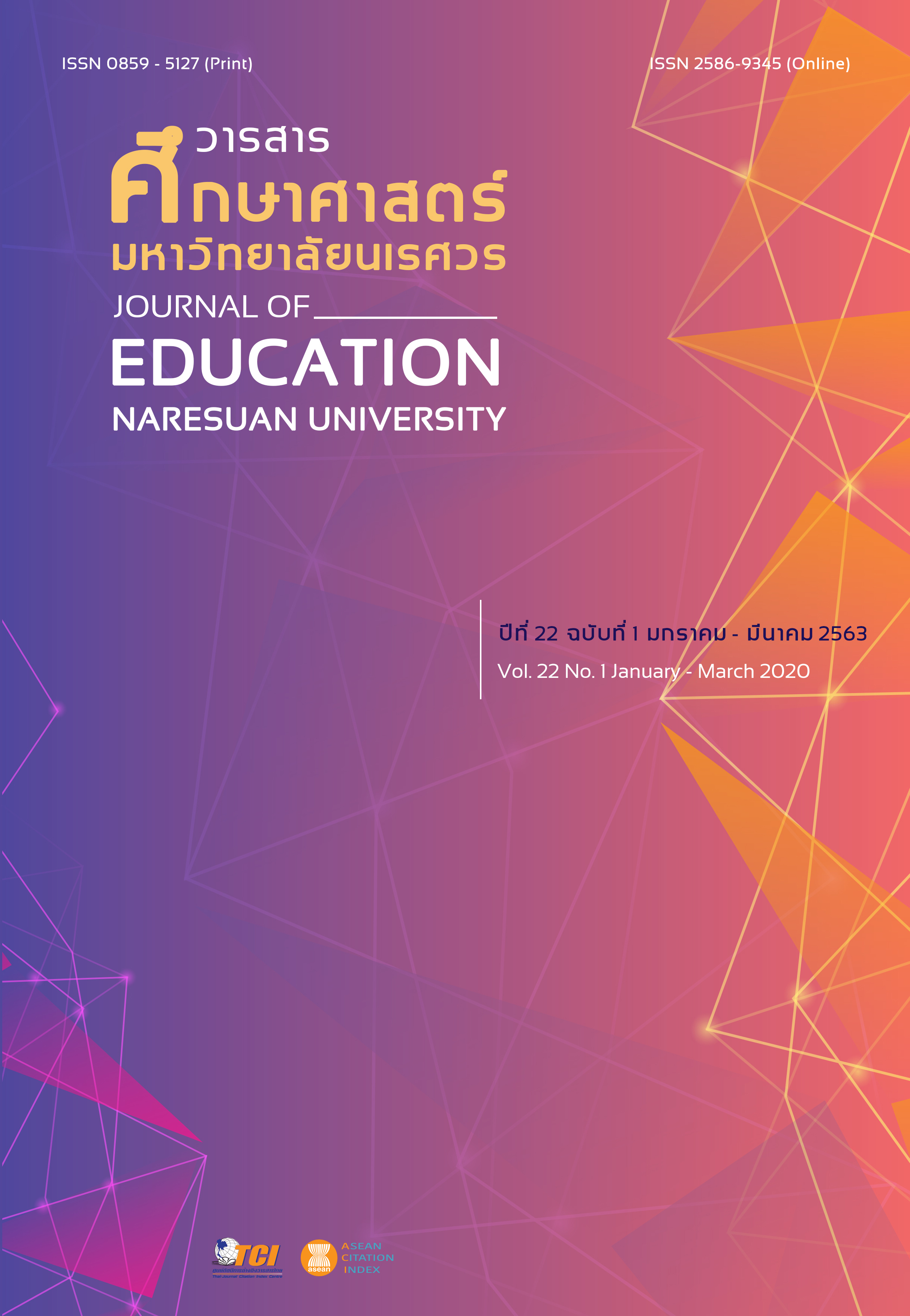THE EFFECTS OF USING 3-DIMENSIONAL EDUCATIONAL GAME (COMPETITION TYPE) TO ENHANCE SELF-LEARNING IN SCIENCE SUBJECT AREA FOR LOWER SECONDARY LEVEL
Main Article Content
Abstract
The research objectives were 1) to compare learning achievement before and after learning with 3D competitive game, and 2) to survey the satisfaction level of students who learned with 3D competitive game. The sample in this research were students in lower secondary level. Each school was randomly selected from each part of Thailand. The sampling processes were 1) each province was selected form each part of the country, and 2) each school name was drawn from each selected province. The research instruments were 1) learning achievement test, and 2) students’ satisfaction questionnaire. The data were analyzed by mean, standard deviation and descriptive analysis. The research found that students’ learning achievement after learning with 3D competitive game were higher than before learning with a statistical significance level of 0.05. In addition, overall students’ were satisfied with learning with 3D competitive game at a high level ( = 4.05, S.D. = 0.52)
Article Details
The owner of the article does not copy or violate any of its copyright. If any copyright infringement occurs or prosecution, in any case, the Editorial Board is not involved in all the rights to the owner of the article to be performed.
References
Jangwa, K. (2008). The development of computer assisted instruction of mathematics stimulation game on the topic of fraction for students in Pratomsuksa 5. Retrieved January 12, 2016, from https://tdc.thailis.or.th/tdc/browse.php? [in Thai]
Jiraworapong, P. (1984). Principles and theories of educational technology. Phitsanulok: Faculty of Education, Srinakharinwirot University. [in Thai]
Knowles, M. S. (1975). Self-Directed Learning: A Guide for Learners and Teachers. Chicago: Follett Publishing Company.
Laohajaratsang, T. (2001). Web-Based Instruction: Innovation for quality of teaching and learning. Journal of Education, 28(1), 87-94. [in Thai]
Nannararat, P. (2012). Type of computer game from Wikipedia. Retrieved August 14, 2017, from https://www.gotoknow.org/posts/231850 [in Thai]
Office of the Royal Society. (2003). Office of the Royal Society Dictionary of B.E. 2542. Bangkok: Nanmee Book. [in Thai]
Sanphit, S. (2006). A comparative of discussion format through web boards towards learning achievement in web supported course for Mathayomsuksa 5 students at Saipanya Rangsit School (Master thesis). Bangkok: Kasetsart University. [in Thai]
Sittiwong, T. (2017). Development of computer simulation games for enhancing strategic thinking ability of higher education students. Journal of Education Naresuan University, 19(2), 16-34. [in Thai]
Songkram, N., & Saelu, A. (2009). Development computer games to improve agriculture knowledge in topic of growing kale (Master thesis). Bangkok: King Mongkut's Institute of Technology Ladkrabang. [in Thai]
Wuttirak, A. (2014). The development of learning achievement in topic Commercial registration Limited partnership and Company limited in account process course of 2nd year students in Vocational Certificate, major of accountancy which learning by simulation, SIBA College. Buriram: Buriram Rajabhat University. [in Thai]


